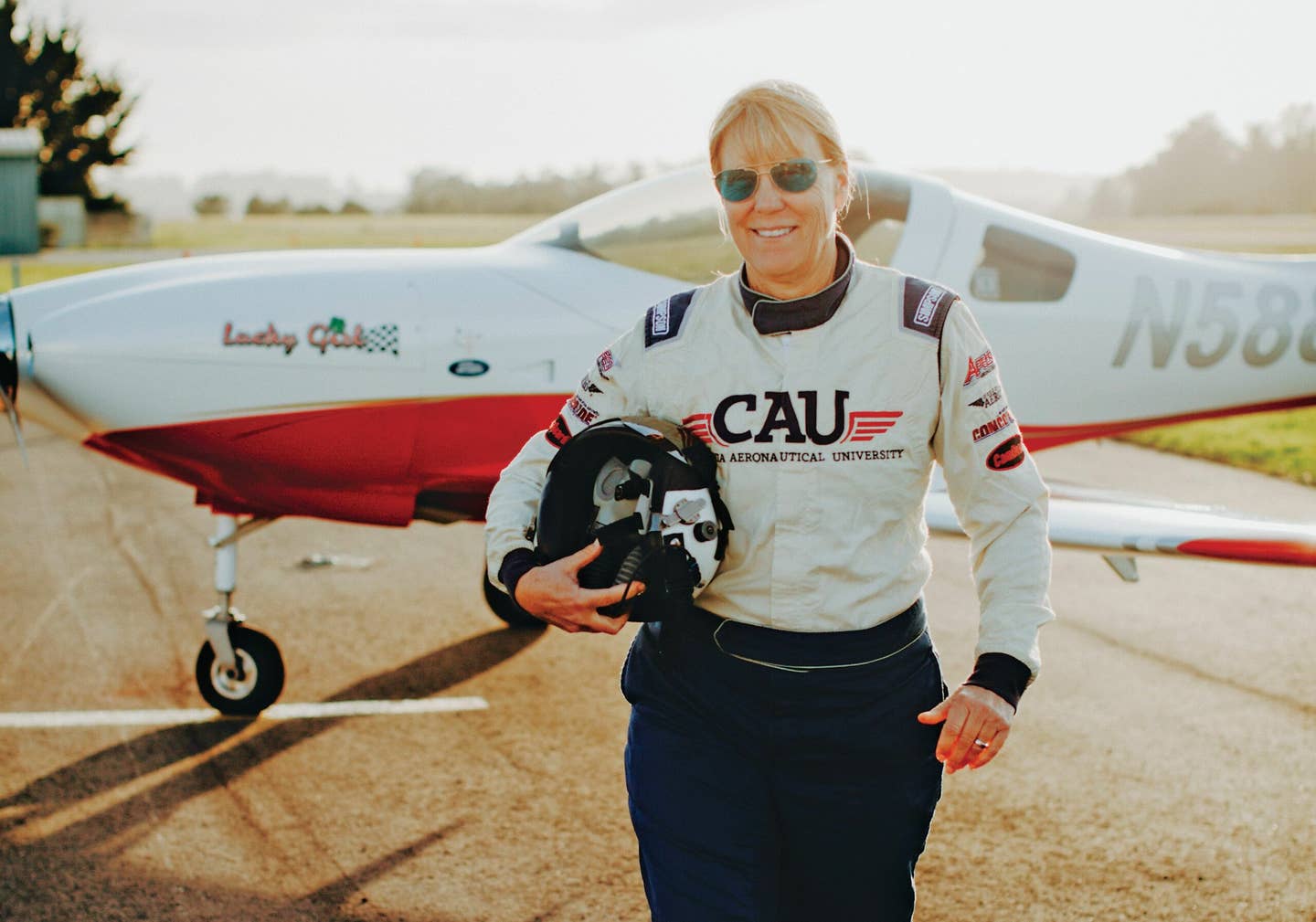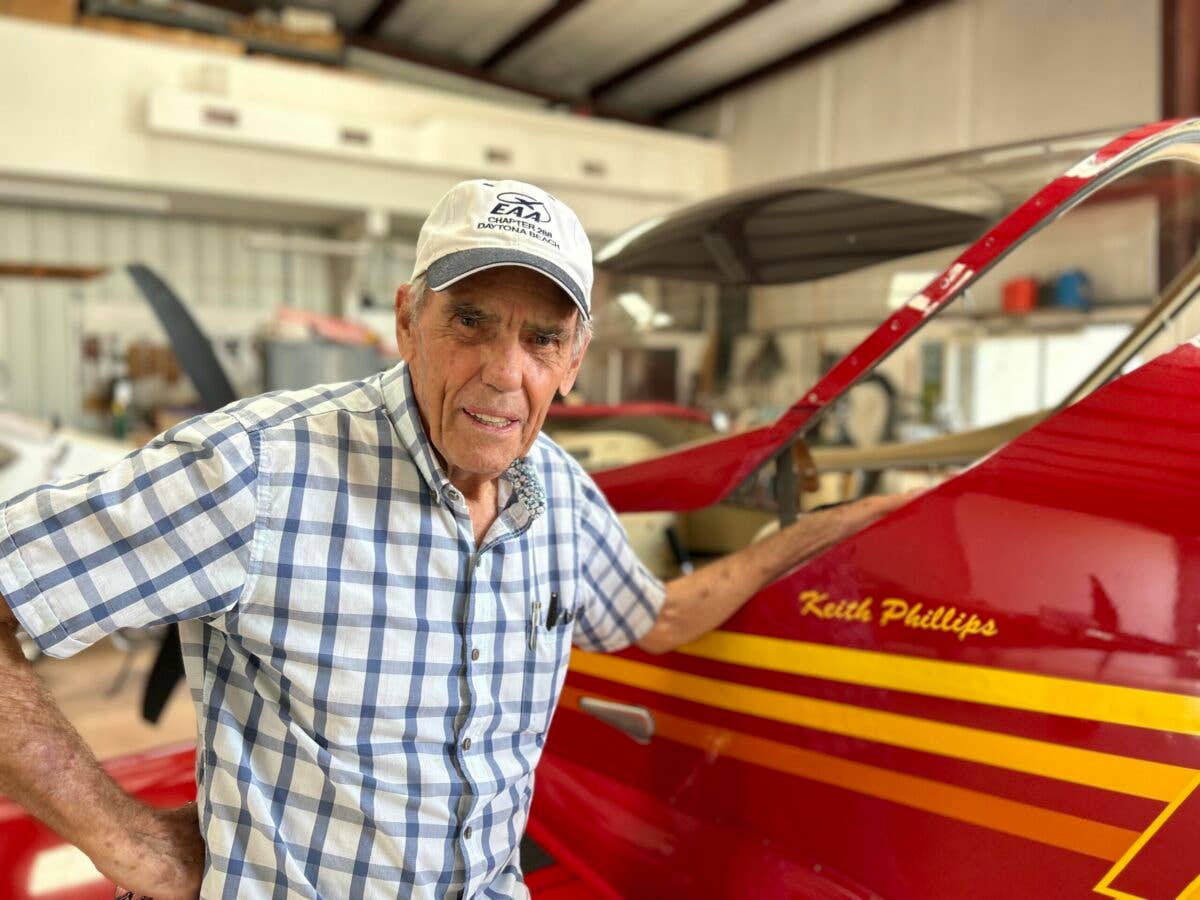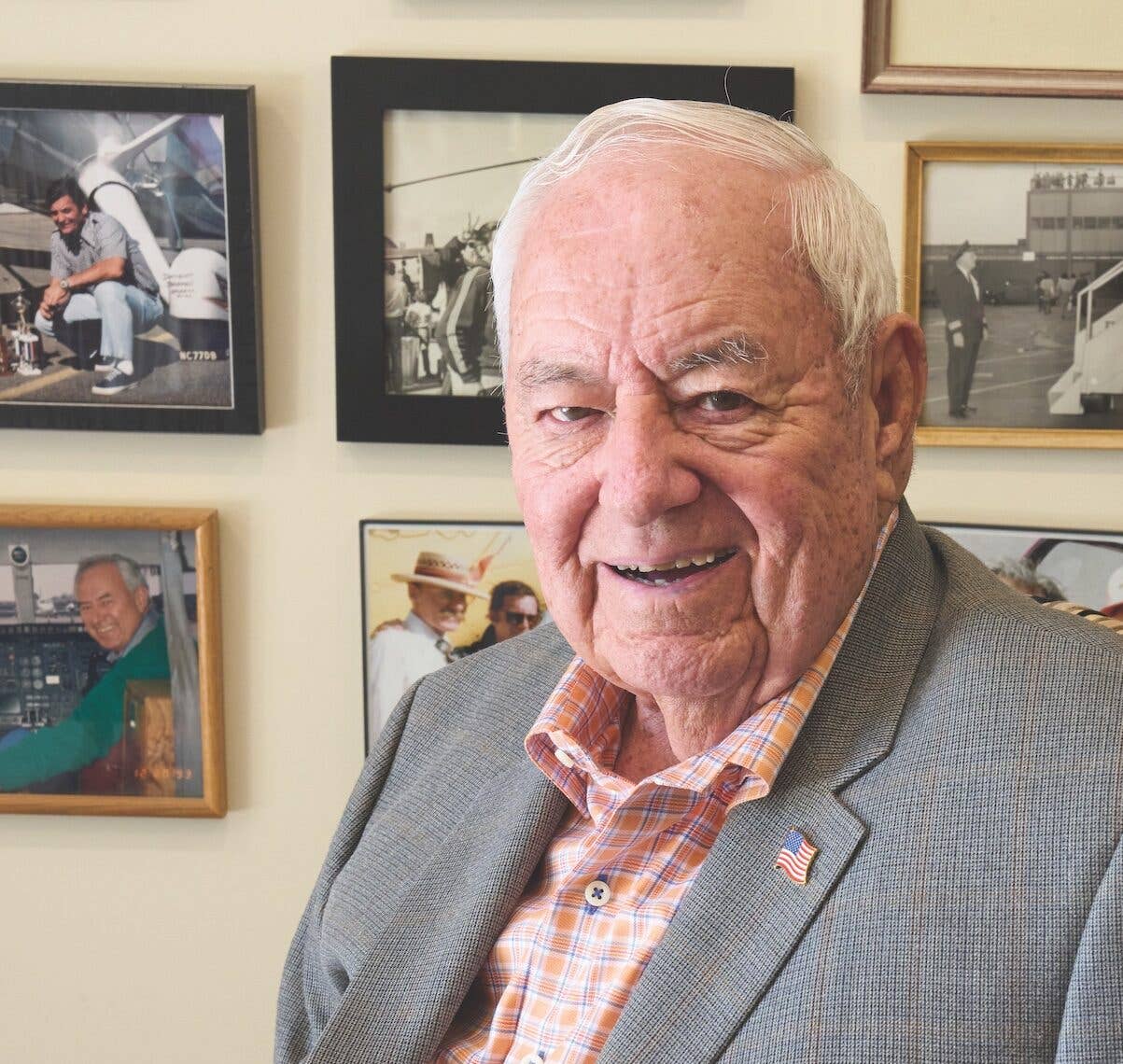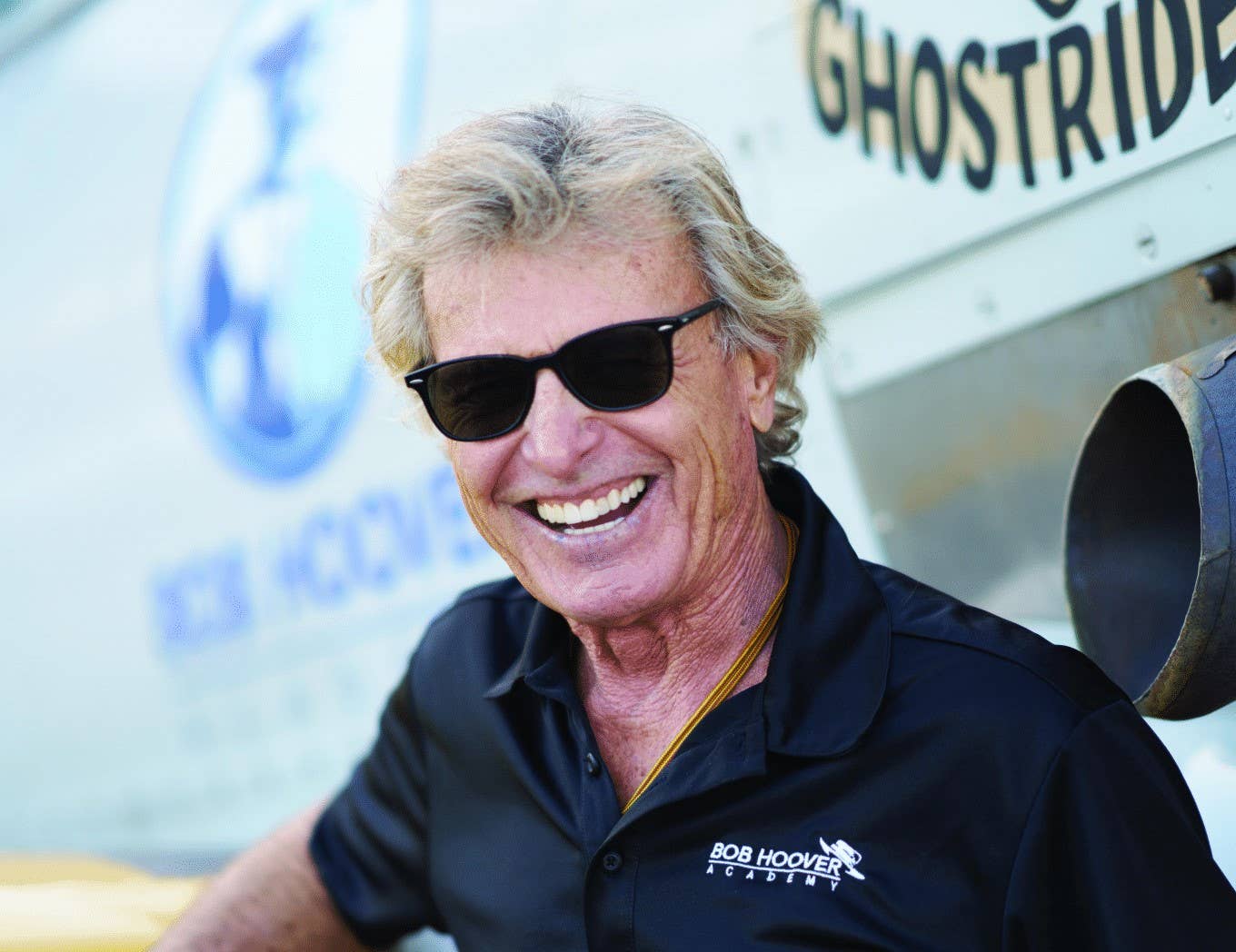One Iconic Cessna 180 Has Quite a Story to Tell
Jerrie Mock’s name should be spoken in the same breath as Charles Lindbergh and other aviation legends. Her circumnavigation remains an enduring achievement.
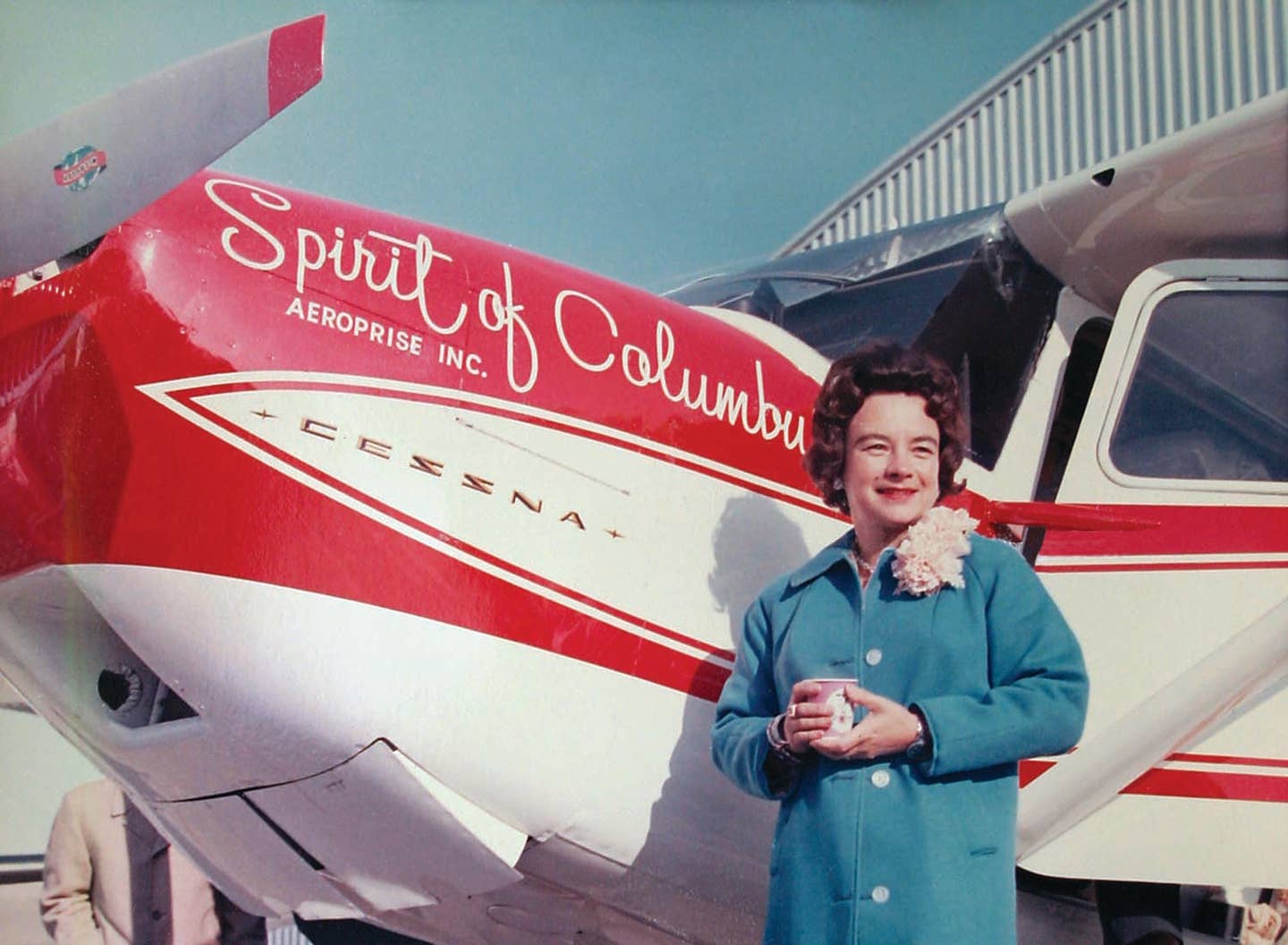
Jerrie’s accomplishment was celebrated in 1964 but has since faded from view. [Contributed Photo]
When Jerrie Mock returned to Port Columbus International Airport in Ohio on April 17, 1964, to successfully complete her world-circumnavigation flight, she became the first woman to fly solo around the globe. While technically she was the only person on board, throughout the flight she was not alone. Right there with her, pushing onward with every nautical mile, was Jerrie’s essentially stock 1953 Cessna 180 Skywagon, christened Spirit of Columbus, after Jerrie’s home town. To the FAA, the airplane was known as N1538C, but to Jerrie it was “Charlie”—her nickname for her faithful airplane— which needs to be given an equal amount of credit for the flight.
From a distance, Charlie looks like every other Skywagon. Look inside the cabin, and you’ll see that it was stuffed with giant aluminum fuel tanks, with nothing but a tiny space for the left seat being all that remained of the stock interior. Jerrie had upgraded the panel to include the latest long-range radio equipment that was available in 1964; however, beyond the modifications to make the flight, Charlie was just a tough and dependable airplane with enough useful load to tanker the fuel required to fly extremely long legs over angry oceans.
I learned about Charlie in 2000 after reading Jerrie’s book, Three-Eight Charlie. There was incredible aviation detail jumping off every page, and each word was a delight. This courageous woman flew herself solo around a world, and the rest is—or at least should have been—history.
Except it wasn’t.
Charlie Gets Snubbed
After asking how many of the members of my local aviation club knew who the first woman to fly solo around the world was, exactly zero knew about Jerrie Mock or her solo circumnavigation. I was disappointed at that moment because her name should be spoken in the same breath as Charles Lindbergh and other aviation legends we so easily remember.
I soon found myself in Washington, D.C., so naturally, I planned a visit to the National Air and Space Museum. Upon arrival, I fully expected to see Charlie hanging next to Lindy’s Spirit of St. Louis. After all, Lindy flew across one ocean single-engine, but Jerrie flew across several oceans, also in an airplane with nowhere to go but down if its one engine bought the farm.
I searched the entire museum and did not see Charlie. I was told by the info desk that it was in storage out at the museum’s Paul E. Garber Preservation, Restoration and Storage Facility in Suitland, Maryland. After a quick metro ride, my tour group at the storage facility was soon strolling through numerous large buildings, and as the tour was about to end, I spotted a red-and-white Skywagon with its wings removed sitting in a rather dimly lit warehouse.
The tour guide confirmed it was Jerrie’s airplane.
With knowledge of what this woman did in this airplane, I stood in confused awe. I felt Charlie’s presence in an odd, surreal way, as if its soul was reaching out to me. Standing there looking at the dismantled Skywagon, I felt an energy between it and myself that to this day remains strong. I quietly wondered why aviation history had been so cruel to Jerrie, her airplane and her accomplishment.
In defense of the NASM, the tour guide told me that Charlie had at one time been on display, and would be hung “someday” in the new Steven F. Udvar-Hazy Center that was under construction at the time. But in that moment, it remained a noteworthy airplane that seemed sadly neglected. A powerful sense of urgency sweep over me, and I knew I had to do something to make this right.
Jerrie and Charlie faced numerous adventures on their journey. Through heavy icing over the Atlantic to being welcomed by a squad of soldiers aiming rifles at them in Egypt, both the pilot and the airplane persevered. I decided that a full-length feature film about the flight would correct this malfunction of aviation history.
The Meeting
It was not long after that I found myself sitting across from Jerrie in her Florida home, pouring over musty boxes of paperwork that included photos, telegrams, receipts—really an endless flood of her personal documentation from the flight.
I had gone to meet Jerrie for one purpose: to negotiate the movie rights to adapt her book Three-Eight Charlie into a screenplay. After some intense discussions, I eventually got her to sign an exclusive deal so I could acquire the rights and try to sell her story to the movie studios. But after a few years and several screenplay rewrites, the movie project never materialized and the project died. Had a studio picked it up, I believe it would have been the perfect film to inspire a whole generation of young women to pursue flying as a hobby or career.
In 2005, Dorothy Cochrane, NASM’s general aviation curator, granted me full access to Charlie for a private photoshoot before it was hung from the rafters at Udvar-Hazy. The photos reveal that Spirit of Columbus is exactly as Jerrie left it when she returned from her world flight, with typewritten notes for changing frequencies and moving fuel around the complex ferry-tank system still taped inside the cabin.
Today, Charlie has been moved downtown into the NASM as an important focal point of its new Thomas W. Haas “We All Fly” general aviation gallery, scheduled to open in 2022. While Jerrie has gone west, Charlie will now live on to tell the public about that 1964 flight, and after 58 years, it will finally get the recognition that is so richly deserved.
I encourage you to read the book, long out of print, but with reprints available at 38charlie.com. And if you get to the NASM and find a stock red-and-white Cessna 180 on display, that’s Charlie. Do yourself a favor and hang out with it for a while—because, trust me, it’s got quite an adventurous story to tell.
Editor's Note: This article appeared in the November 2021 issue of FLYING.
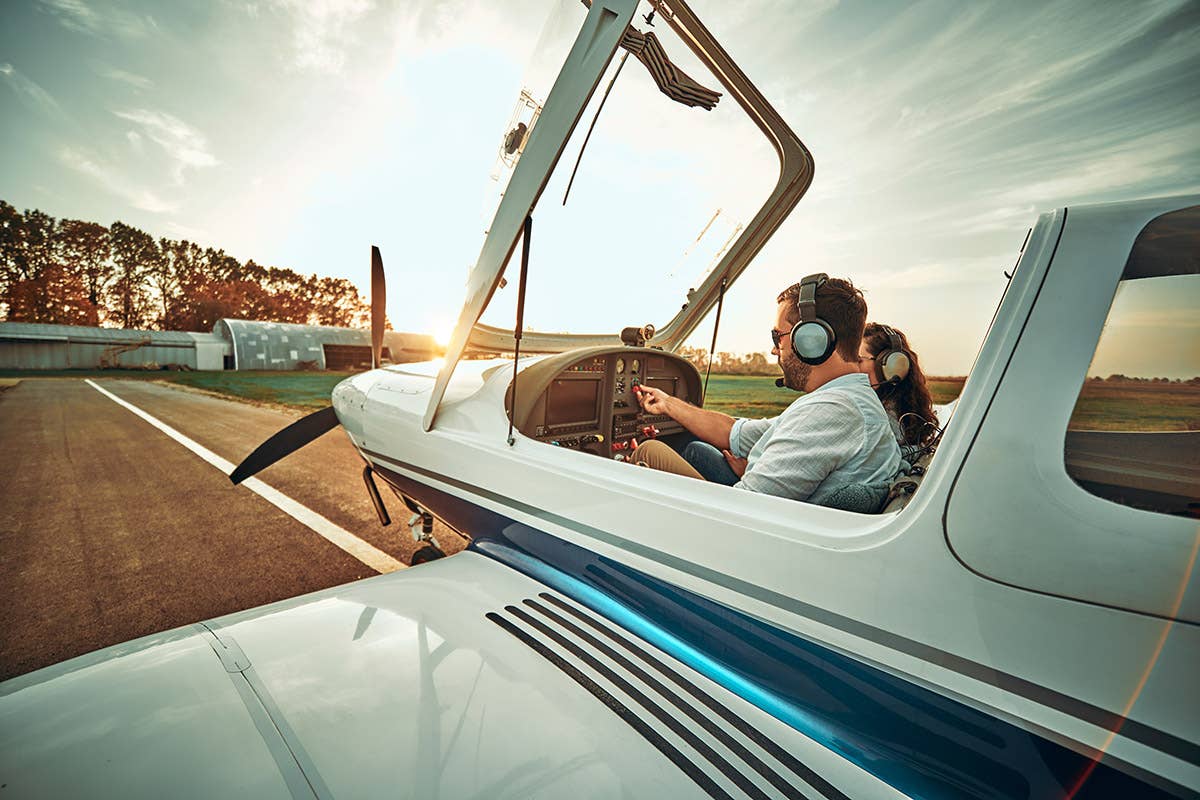
Subscribe to Our Newsletter
Get the latest FLYING stories delivered directly to your inbox


